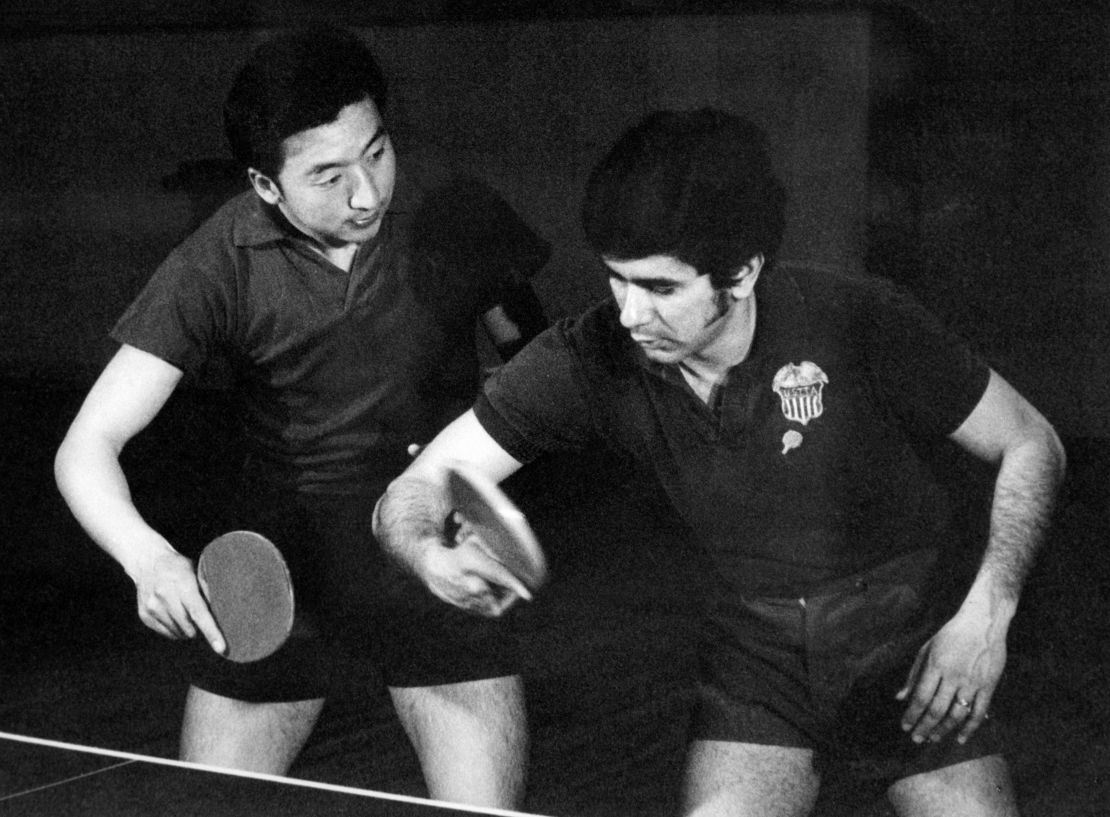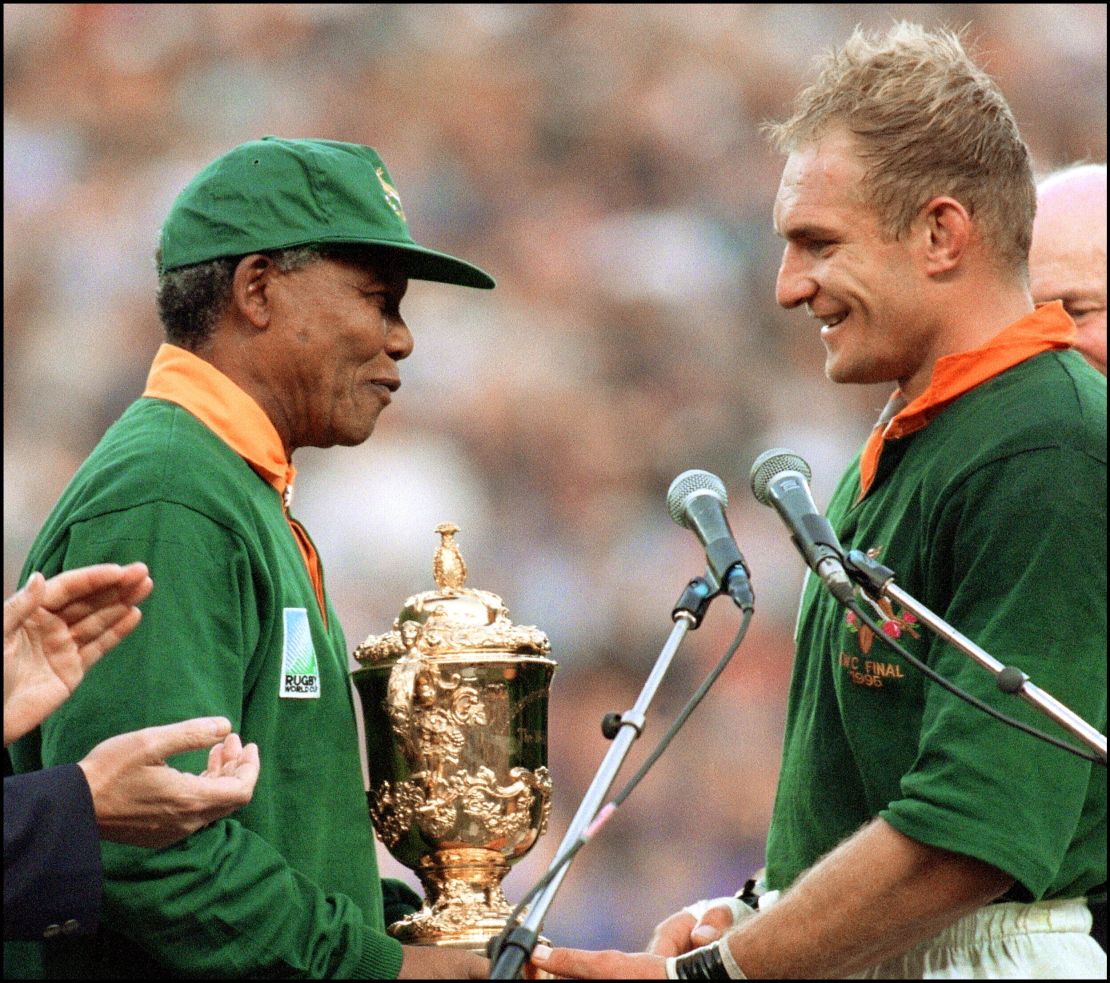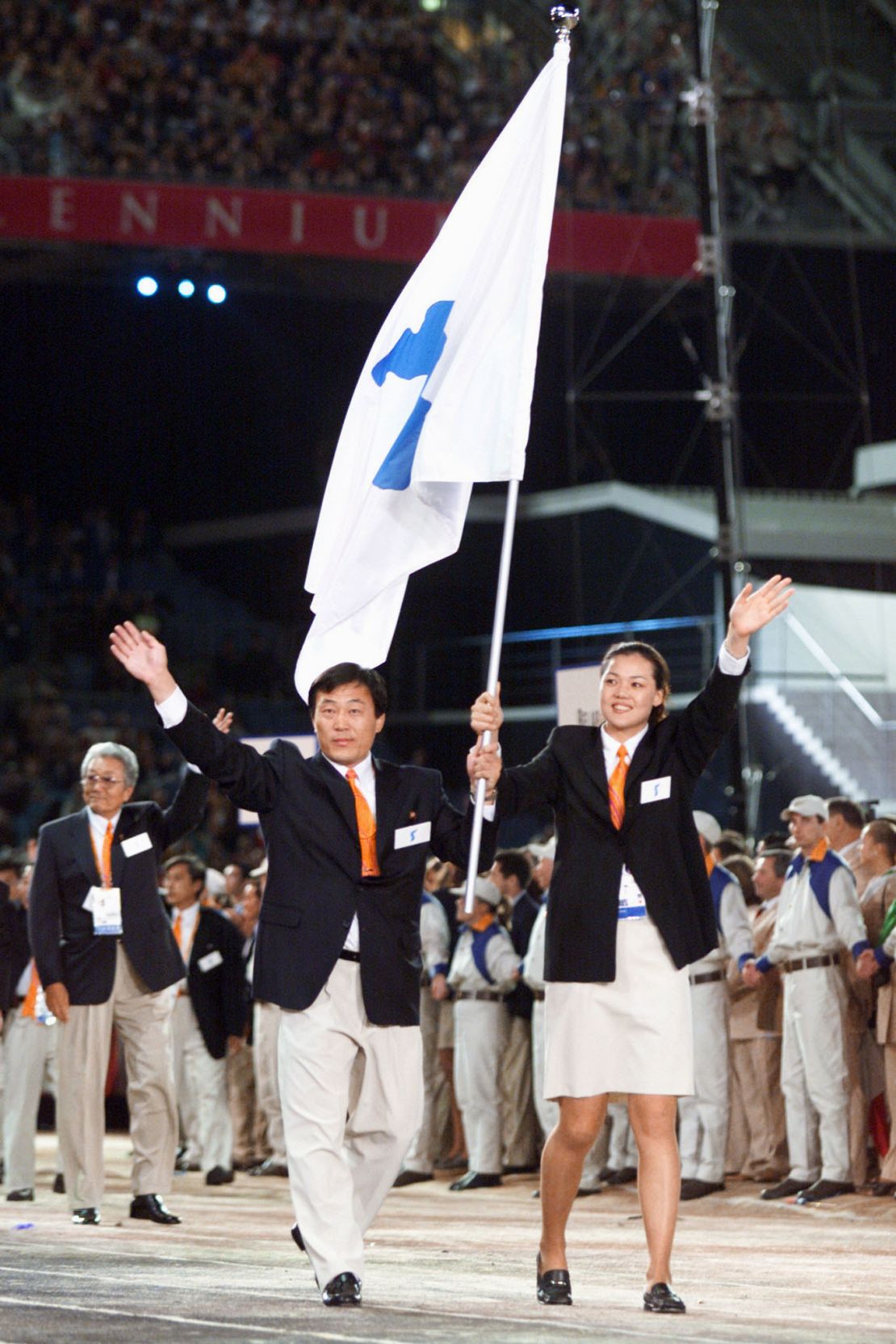Story highlights
Iranian wrestling officials lobbied to get US wrestlers to the World Cup
US and Chinese ping-pong players helped the countries establish diplomatic ties
Never mind high-pressure peace talks that fail amid the looming threat of warfare. Try wrestling or ping-pong diplomacy instead.
For the first time in years, North Korean and South Korean officials sat down for high-level talks Tuesday. The main topic: to discuss the North’s participation in the upcoming Winter Olympic Games in South Korea.
If North Korean athletes go to Pyeongchang, it would be the first time in post-war Olympic history that a country has hosted a team from a nation with which it is officially at war.
Will it lead to better political relations? Analysts are cautiously optimistic. But here are several examples of sports diplomacy success stories:
Ping-pong diplomacy

In the 1970s, the Cold War was even icier than the Winter Olympics. But a Chinese ping-pong player’s chance meeting with an American player on a bus got the ball rolling for formal Chinese-US diplomatic ties.
It started at a 1971 tournament in Japan. American teenager Glenn Cowan missed his team’s bus and hopped on the Chinese team’s bus instead.
After much hesitation, Chinese player Zhuang struck up a conversation through a translator – a brave act, given the constraints of China’s Cultural Revolution-era politics.
“We were all tense,” Zhuang told CNN in 2008. “Our team had been advised not to speak to Americans, not to shake their hands, and not to exchange gifts with them.
“I looked at him, thinking, ‘he is not the one who makes national policies, he is just an athlete, an ordinary American.’”
Zhuang gave the long-haired American a silk brocade as a gift. The next day, Cowan gave him a T-shirt with a peace sign and the words “LET IT BE.”
Photos of their encounter were widely publicized. And before long, Chinese leader Mao Zedong invited the US team to visit and play friendly matches in China.
The next year, US President Richard Nixon visited China – ultimately leading to the establishment of diplomatic ties between the two countries in 1979.
Pin-down diplomacy
Similar to ping-pong diplomacy, “pin-down diplomacy” between US and Iranian wrestlers “has been instrumental in changing perceptions about Iranian and American society, and building bridges between sports communities and ordinary citizens,” the think-tank Atlantic Council said.
But wrestlers had to grapple with political upheaval last February, after the Trump administration announced a travel ban against people from seven Muslim-majority countries – including Iran.
Iran, in retaliation, denied visas for the American wrestlers planning compete in the freestyle wrestling World Cup in Iran.
But after US courts halted the ban, the visas were finally granted.
“[The Iranian] Wrestling Federation lobbied on our behalf, and I think their government as well looked at it as an opportunity to show their graciousness and their respect for the sport of wrestling,” US head coach Bill Zadick said.
“A World Cup without the Americans would not have been a real World Cup,” Rasoul Khadem, head of the Iran Wrestling Federation, told CNN.
The respect between the US and Iranian wrestlers was obvious.
“I have been wrestling overseas for three years now, and every Iranian I have ever come in contact with has been extremely respectful, extremely polite,” US Olympic gold medalist Kyle Snyder said during a training session.
“(While) there’s a little bit of turmoil politically, you definitely don’t see that within the sport. We respect each other as competitors and as people,” Snyder told CNN.
Rugby diplomacy

In 1994, black South Africans – reeling from decades of apartheid – largely hated rugby. It was a sport played by white men – the race of their longtime oppressors.
So newly elected President Nelson Mandela decided to employ rugby star Francois Pienaar to help mend deep racial divides.
John Carlin, author of “Playing the Enemy,” said Mandela used the Rugby World Cup final to win over parts of the population who had largely supported his 27-year imprisonment – and who had threatened to push South Africa into a civil war under the country’s first black leader.
Mandela called Pienaar for a meeting before the 1995 World Cup in South Africa.
“I can’t tell you how nervous I was,” Pienaar said. “I didn’t know what he was going to ask me. I wondered: ‘Why does he want to see me? What am I going to say?’”
At the World Cup final, Pienaar delivered an eloquent tribute to Mandela.
And Mandela walked onto the stadium field to shake the hands of players, wearing the green cap and uniform of the South African national team. Pienaar’s number was on his jersey.
When the crowd first saw Mandela, said they seemed “to go dead still,” Carlin said.
Then they started chanting something unexpected: “Nelson! Nelson!”
If this plotline sounds like it would make a great Hollywood movie, it did. Clint Eastwood directed the 2009 movie “Invictus,” starring Morgan Freeman as Nelson Mandela and Matt Damon as Francois Pienaar.
Skating diplomacy?
So far, the only North Koreans to qualify for the Pyeongchang Olympics are the figure skating pair of Ryom Tae Ok and Kim Ju Sik.
They qualified based on their performance at September’s Nebelhorn Trophy in Germany – where they skated to Beatles music.
But the North Korean National Olympic Committee failed to meet an October 30 deadline to accept their Olympic spot.
Luckily for North Korea, the International Olympic Committee (IOC) has said it would keep open its invitation for a North Korean delegation at the Pyeongchang Olympics next month.
North Korea hasn’t sent a delegation the Winter Olympics since 1992 – the last year that the winter and summer Olympics were held the same year.
It’s not crazy to think members of the two Koreas could march in the Olympic opening ceremony together. They did exactly that at the 2000 Sydney Summer Olympics.

A hallmark of the the opening ceremonies, of course, is the Olympic flame. The flame is part of the symbol of the Olympic Truce, the ancient Greek tradition of a temporary peace between warring states competing at the Games.
How appropriate.
CNN’s Aimee Lewis, Jason Hanna, Eliott C. McLaughlin, Katie Hunt, John Blake, Frederik Pleitgen and Taehoon Lee contributed to this report.








